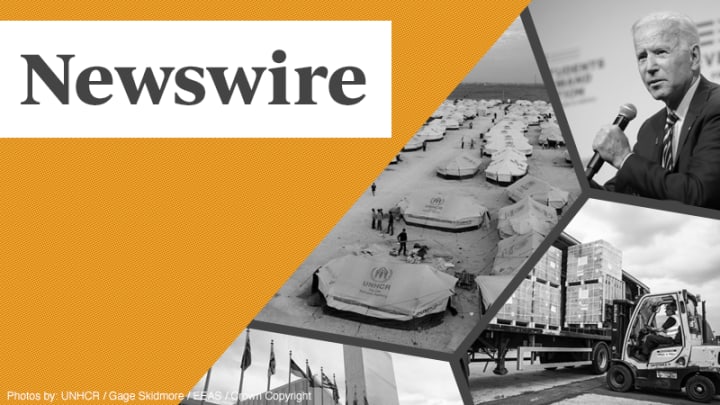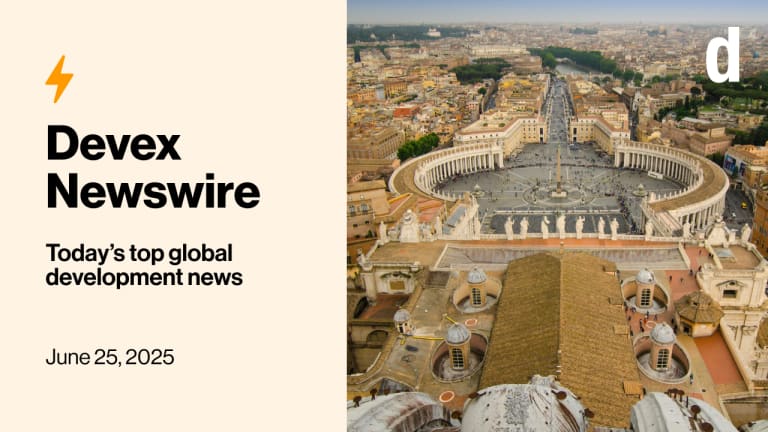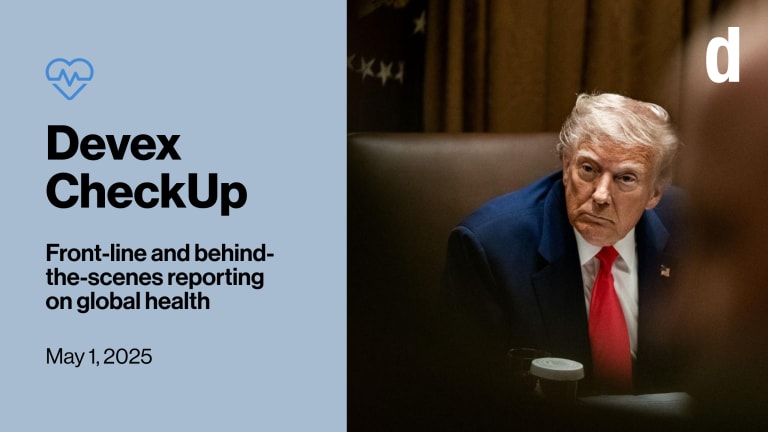
The Global Fund is grappling with how to safeguard the programs it funds against sexual abuse.
This is a preview of our daily Newswire. Sign up to this newsletter to receive an inside look at the biggest stories in global development.
Last month the Global Fund released a report detailing its investigation of sexual abuse allegations involving a sub-sub grantee organization in Ghana. Executives at the Ghana Network Association of People Living with HIV were accused of demanding sex acts and money in exchange for access to services.
• While the details are particularly abhorrent, the case raises a familiar challenge for the Geneva-based partnership: how to balance a country-owned, low-footprint organizational structure with sufficient oversight of grantees. The fund faced similar challenges around preventing financial fraud shortly after its creation.
• Rumbi Chakamba speaks to Nick Jackson, the Global Fund’s ethics officer, about how the organization plans to respond. In addition to updating its codes of conduct to explicitly prohibit sexual abuse and exploitation, Jackson says the fund is now working to connect its country coordinating mechanisms with sexual abuse protection networks in the countries where it operates.
• “We have to be using our voice and influence in a way that first of all places the survivors and victims front and center of any response. But also places accountability in the country in the frontline and enables and requires those organizations delivering programs to step up and deal with these things,” he says.
Read: The Global Fund updates its sexual exploitation and abuse policy
SPRING IN THE AIR
The World Bank and IMF Spring Meetings are in full swing.
• U.S. climate envoy John Kerry revealed Wednesday that he and Indian Prime Minister Narendra Modi had discussed the U.S. bringing some “concessionary finance” to the table to reduce risk, and then promote commercial investment for alternative sources of fuel to help countries transition away from coal.
• IMF chief Kristalina Georgieva said her organization’s current “preoccupation” is with climate adaptation strategies, and she warned against allowing climate change to become another force for “divergence” between higher and lower-income countries.
• Vera Songwe of the United Nations Economic Commission for Africa is calling for a system that would allow high-income countries to transfer billions in IMF reserve assets to lower-income countries, Sara Jerving reports.
Online event: Go inside the World Bank Spring Meetings on April 9.
For Devex Pro subscribers: Nearshoring from China could net Latin America $70 billion
TEACHABLE MOMENT
The COVID-19 pandemic has been big for education technology. Sudden school closures around the world and widespread transition to distance learning have amounted to an unprecedented experiment in how well these techniques and technologies work — and who gets left behind.
For Devex Pro subscribers, Gabriella Jozwiak reports on lessons from the great COVID-19 distance learning experiment.
Opinion: Plans to fund global education just don’t add up — urgent action is needed
BEARING THE BRUNT
In sub-Saharan Africa, 41% of women-owned businesses closed over the past year, compared with 34% of those owned by men. The pandemic has taken a disproportionately high toll on women in low- and middle-income countries, according to a Center for Global Development analysis of over 400 studies conducted since the pandemic began.
Read: Hundreds of studies confirm: Women hit hardest by COVID-19
FINDING FAITH
“I think the most important thing is for Muslims to be able to contextualize religion into the pandemic … It's not enough for us just to use the public health guidelines. We have to look to support from the scriptures.”
— Mohamed Karama, chair of the National Muslims COVID-19 Response Committee.Sara Jerving reports from Nairobi on how one organization is looking to Islamic texts for lessons about COVID-19 as part of our Faith and Development series.
GET YOUR GOAT
Farmers in Samarkand, Uzbekistan, protested rangelands policies by shepherding large herds of goats to the mayor’s office in peaceful — but very noisy — protest.
IN THE NEWS
The U.S. announced yesterday a $235 million aid package for Palestinians, including $150 million for UNRWA. [Reuters]
The U.K. foreign office has barred Oxfam from applying for aid money following new allegations of sexual misconduct of two staff in the Democratic Republic of Congo. [The Guardian]
Taiwan accused China of using COVID-19 vaccines to lure Paraguay away from supporting the island's push for diplomatic recognition. [BBC]
U.K. mine clearance charity HALO Trust has warned it will have to end operations in Syria following aid budget cuts. [The Times]
Sign up to Newswire for an inside look at the biggest stories in global development.




